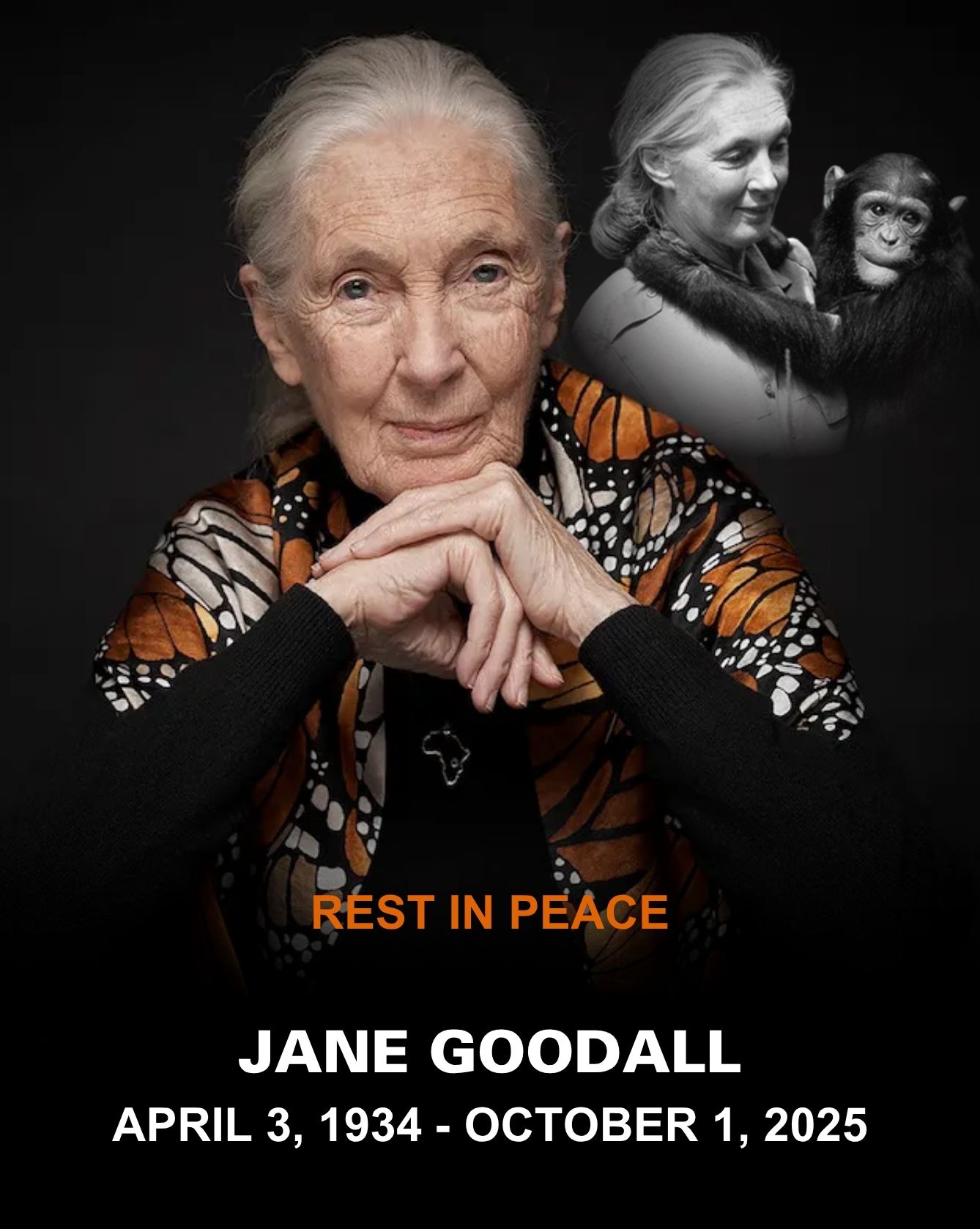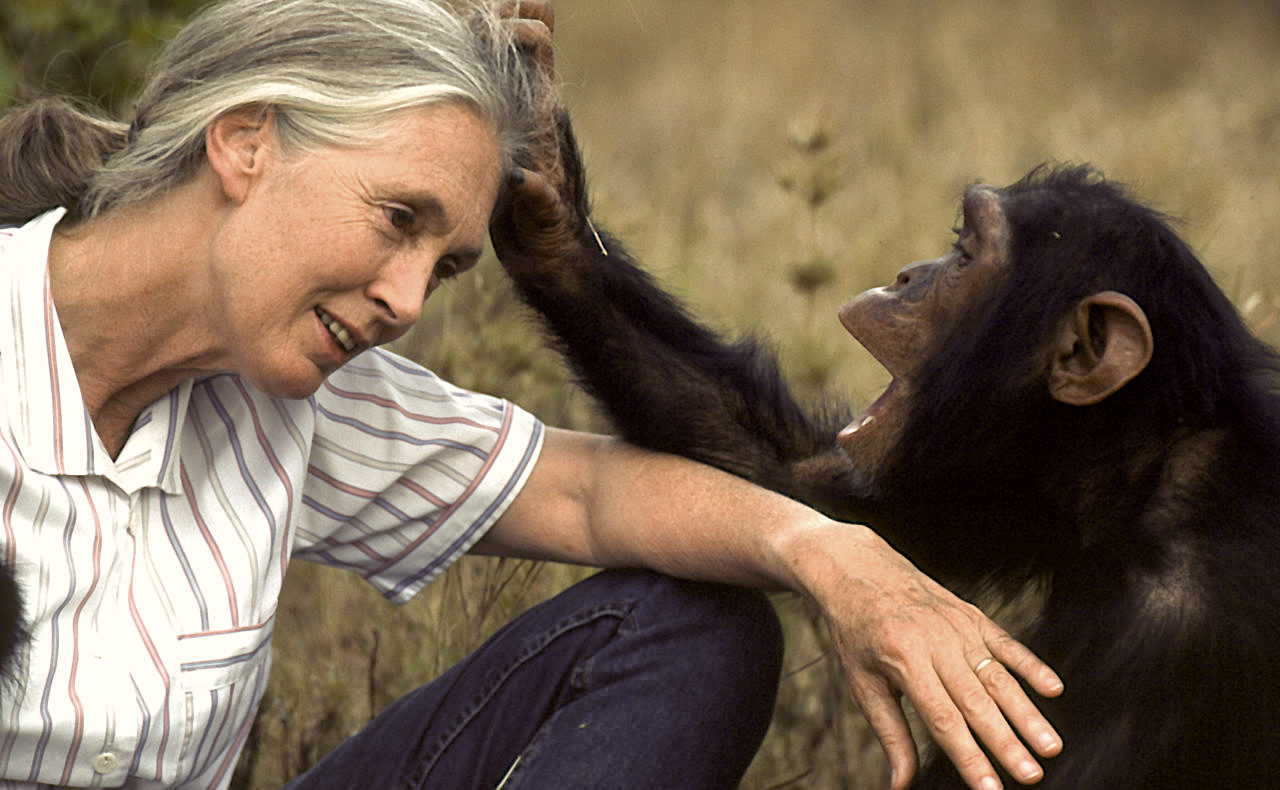JANE GOODALL DIES AT 91: A LEGACY THAT TRANSFORMED HUMANITY’S UNDERSTANDING OF WILDLIFE
The world is mourning the passing of Jane Goodall, the legendary chimpanzee expert, zoologist, and tireless animal rights advocate, who has died at the age of 91. Her death, confirmed on October 1, 2025, closes a remarkable chapter in human history — one that forever changed how we view animals, our environment, and our shared responsibility to the earth.
Few names are as synonymous with conservation as Jane Goodall. For more than six decades, she stood as a beacon of wisdom, courage, and gentle determination, devoting her life to understanding and protecting the natural world. Her groundbreaking research in Gombe Stream National Park in Tanzania revealed that chimpanzees are not just distant relatives of humanity but complex beings with emotions, intelligence, and social structures.
In the 1960s, her discoveries stunned the scientific community. By observing chimpanzees using tools, expressing grief, and showing forms of compassion, she dismantled long-held beliefs that separated humankind from the animal kingdom. Her work did not merely expand the field of primatology; it reshaped the moral framework through which we consider our relationship with all living creatures.
Born in London in 1934, Jane’s fascination with animals began at an early age. A childhood gift — a toy chimpanzee named “Jubilee” — foreshadowed the path she would take. Without formal university training at first, she followed her dream to Africa, where famed anthropologist Louis Leakey recognized her unique potential and sent her into the forests of Tanzania. With little more than a notebook, binoculars, and an unshakable sense of wonder, she embarked on the study that would define her life.
What set Jane Goodall apart was not just her science but her spirit. She brought patience, empathy, and intuition to her observations, treating animals not as subjects but as individuals with lives and stories. Over time, she became not just a researcher, but a global advocate. In 1977, she founded the Jane Goodall Institute, dedicated to conservation, research, and education. Later, through her Roots & Shoots program, she inspired millions of young people worldwide to take action for the environment, empowering the next generation to see themselves as caretakers of the planet.
Her voice, calm yet urgent, resonated in lecture halls, at the United Nations, and in schools across continents. She spoke not with anger but with conviction, offering a message of hope even in the face of environmental crisis. One of her most famous reminders was simple but profound: “What you do makes a difference, and you have to decide what kind of difference you want to make.”
The news of her death has sparked tributes from across the globe. Fellow scientists credit her with reshaping primatology. Conservationists call her their guiding star. World leaders have spoken of her as a conscience for humanity. On social media, images of Jane smiling among chimpanzees have been shared millions of times, accompanied by words of gratitude for the life she led and the lessons she left behind.
Her passing, though deeply sorrowful, carries with it the richness of a life fully lived. Even at 91, she remained active, speaking, traveling, and reminding audiences that there was always room for hope. Her presence, whether in the dense forests of Tanzania or on a stage before thousands, radiated an authenticity that few could match.
As we reflect on the loss of Jane Goodall, we are reminded that her story is not only one of scientific achievement but of moral leadership. She showed us that animals are not resources to be exploited, but beings to be respected. She challenged us to rethink our priorities, to live with compassion, and to act with courage.
Though she is gone, her influence endures in every young conservationist planting a tree, every sanctuary protecting endangered species, and every person who chooses kindness over carelessness.
Today, the forests may feel quieter, and the world emptier, without her presence. But in truth, Jane Goodall’s voice is not silenced. It echoes in the calls of chimpanzees, in the rustle of leaves, and in the resolve of all who carry her work forward. Her life was a gift — to science, to nature, and to humanity.
At 91, she leaves behind a legacy not measured in awards or honors, but in the millions of lives she touched and the planet she fought so fiercely to preserve.
Jane Goodall has died, but her mission lives on.

